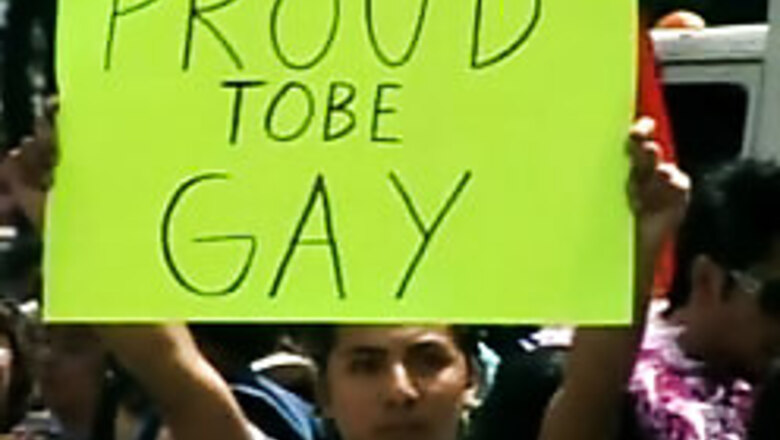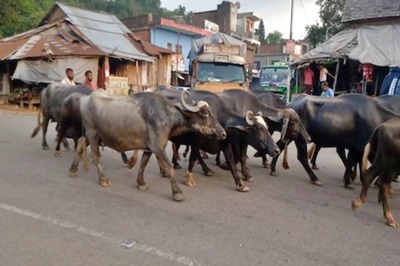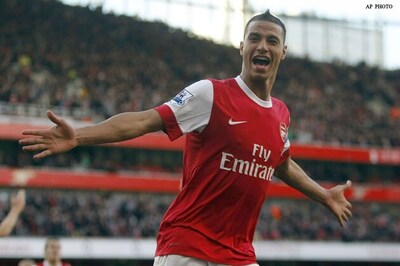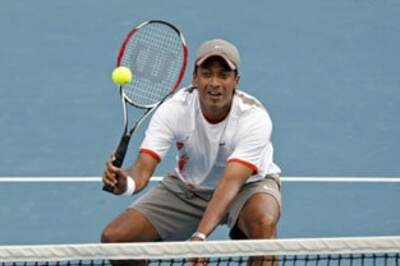
views
New Delhi: On the morning of June 28, 1969, armed squads of the New York Police Department (NYPD) raided the Stonewall Inn, an obscure pub in Greenwich village in New York that was a regular watering hole of gays. And several people were bundled into waiting vans.
The gay groups at the bar protested and the outcry against the arrests led to full-scale riots and arson that lasted five days. Since then, every year the week leading up to June 29 is remembered by sexual minorities and those with alternative sexual proclivities across the world as the “Rainbow Pride Week”. This week is the 30th anniversary of the “Rainbow Flag”, a de-facto symbol of pride of alternative sexual groups worldwide.
Since the middle of the last decade, sexual minorities and the LGBT - Lesbians, Gays, Bisexuals and Transvestites - communities in the country started coming out of their closets to mark June 29 as Stonewall Day with “Queer Pride” parades and commemorative programmes throughout the “Rainbow Pride Week”.
According to members of alternative sexuality groups and the gay community, the first open ‘gay event’ to commemorate the Stonewall Riots was held simultaneously in Mumbai and Kolkata five years ago.
“This year is no different. Sexual minority groups in three major cities of India - New Delhi, Kolkata and Bangalore - will get together to stage colourful parades and candlelight vigils to remember the day when rioters fought the police for the freedom of homosexual, transvestite, bisexual and lesbian groups,” Ashok Row Kavi, noted gay rights activist and former editor of “Bombay Dost”, a magazine for homosexuals, told IANS.
Kavi is in the capital to take part in the “Queer Pride” parade that will flag off Sunday evening from Regal Cinema in Connaught Place, the central business district of the capital, and culminate in a candlelight vigil at Jantar Mantar, the ancient observatory that is a tourist landmark.
Kolkata and Bangalore will also stage “Queer Pride” marches. Mumbai, where it all began five years ago when four gay, lesbian and transvestite communities got together to mark Stonewall Day, however, will host its symbolic “Gayzadi (Gay Independence) Day” in the middle of August to campaign for “the azadi (freedom) of sexual minorities”, Kavi said.
At the heart of Pride marches lies a struggle for gender rights, right to self-determination and protests against police harassment in a country still ruled by archaic conventions that frowns on alternative sexuality as aberrations.
“We want the controversial Article 377 of the Indian penal Code that criminalizes alternative sexuality repealed. It goes against our interest and is a violation of the rights of sexual minorities,” gay activist and writer Gautam Bahn told IANS.
A petition against the “controversial clause” in the Indian Penal Code, which makes unnatural sexual “acts” punishable offences, is pending in the Delhi High Court.
“The petition has entered its final stage and we are expecting a verdict any day,” Bahn said.
“The Queer Pride movement is our insurance policy and our advocacy. We want to advocate our cause and tell the judiciary that people are waiting for the verdict; and they care. It is our insurance because even if Article 377 goes tomorrow, the world will not change overnight.
“This movement will have to gain momentum to change the way of thinking in everyday spaces. Freedom for sexual minorities matters in hearts and minds and not just in courtroom.
“The court room just decides what is criminal,” Bahn said.
The gay rally in Kolkata will kick off from College Square near Kolkata University at 3 p.m. and culminate at Esplanade East, covering a distance of three kilometres.
“Nearly 400 marchers from 10 alternative sexuality and gay rights groups in the city are expected to take part in it,” said Souvik Ghosh of Saathi, a Kolkata-based gay rights organisation.
“We will also protest against the constant harassment of sexual minorities in public places and the negative attitude towards lesbianism and homosexuality in the society,” said Santosh Kumar Giri, a physician attached to a Kolkata-based gay rights group, Kolkata Rishta.
In Bangalore, the march is being led by an alternative sexuality rights forum, Good As You (GAY) that comprises a bunch of young expatriates, IT professionals, lawyers and artists.
It will be flagged off from the National College in the upscale Basavangudi area, a conservative locality dominated by Brahmins. The rally will cover a distance of four kilometres to the Town Hall in the heart of the city.
“We expect at least 1,000 rallyists - members of the LGBT groups and their families to take part in the march,” said Siddharth Nearrain, a spokesperson for GAY.
The sexual minorities are pressing for other demands, as well. For instance, the Bangalore-based GAY and Sangama, two sexual minorities’ forums, want sex change facilities in the city’s leading hospitals, provisions for sex reassignment surgeries for transgender groups and welfare schemes for the LGBT people.


















Comments
0 comment